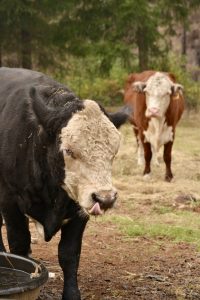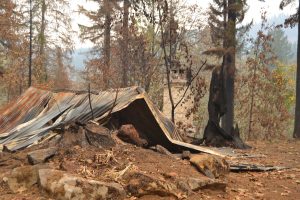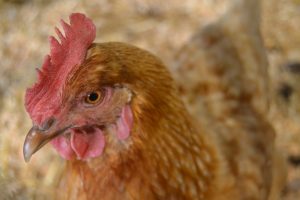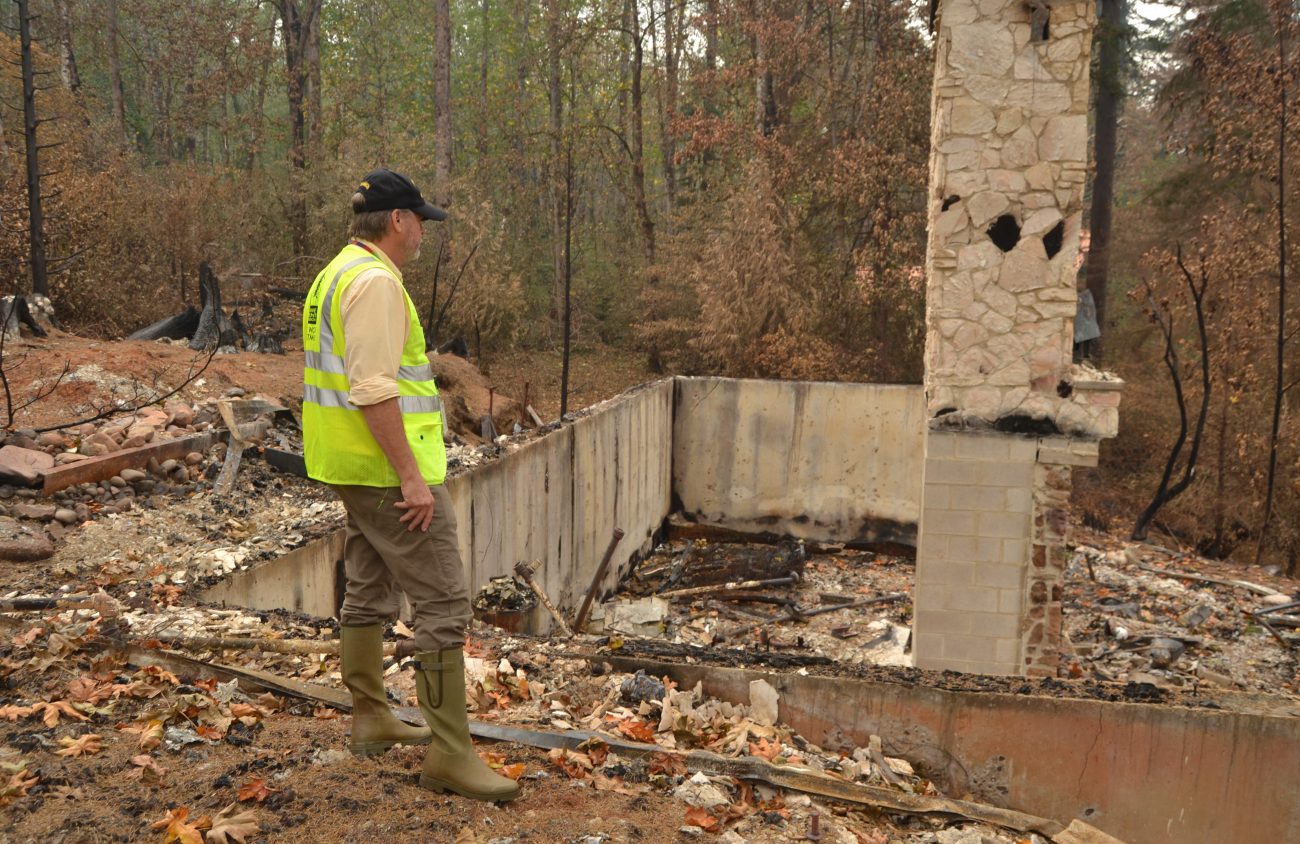Michael Johns, General Services manager with Lane County who heads up the Animal Services division, says he called an evacuee to let him know that his pets were being fed, including the chickens in the yard.
“I said, ‘Hey we fed your chickens for you.’ And he responded, ‘I don’t have chickens,” Johns says. He pauses and smiles.
“I told him, ‘You do now.'”
Johns leads a fleet of animal search and rescuers from Lane County Animal Services, Eugene Animal Control and Springfield Animal Control, every day out Highway 126, leaving behind green trees and grass for the parts of the McKenzie River corridor that burned in the Holiday Farm Fire, which started late Sept. 7. The entourage provides food and water for animals sheltering in place and checks in on the owners who have returned to their homes.
Eugene Weekly went on a ride-along with Johns as he made his rounds, caravanning with a water truck and a hay truck. Driving down 126, the scenery doesn’t look very different, until the fleet of cars reaches the Leaburg Dam.
“That’s when you start seeing the burned parts,” Johns says, as the trees along the corridor fade from green to brown, some fallen down and others being cut down by road crews. Amidst the seared trees, the McKenzie River barrels along its path as if nothing happened.

Turning on Goodpasture Road, Johns and his team make their first stop at a small property on a hill. The owner has two cows, a bull, a goat and some chickens. Johns says that the owner came home a few days ago, but the county offered to to keep providing sustenance for the animals as he settled back in. The cows were a little singed, but otherwise okay. A member of the crew brings down the water truck and fills their buckets with water.
Johns says that each day, they look at their list of tickets and make their rounds on different properties, checking every few days that animals are doing well and have plenty of food and water. “Last week we started in Rainbow and worked our way back,” he says. For every 30 tickets, he explains, 10-15 are either something they noticed or a request from a concerned neighbor.
He adds they haven’t done many animal rescues, and as people are going home or find places to stay they have moved their pets from the Lane County Fairgrounds into friends and families’ properties. In the midst of the evacuations the fairgrounds held over 500 pets, but now they only house around 100.
“We usually get up here around 10,” Johns says. “But we leave before it gets dark.”
At our next stop, Johns flags down some people in the driveway. They say live at the property and had finally returned home that morning. Johns explains that he had been leaving food for their cats and other animals while they were away.
“Thank you,” the woman says. “God bless.”
A few driveways down, we stop at Brian Varney’s home, where he and his wife lived before the fire.
The Varneys had just moved to Vida a little over a month ago with his wife from a seven-acre farm in Cottage Grove. It was their dream home, Brian Varney says, until the Holiday Farm Fire burned it down along with their shed on what was once a quaint property by the river. All that’s left is the concrete foundation, a chimney, some scraps of burned metal objects and his chickens, who escaped the flames.
Johns thinks the chickens were hiding under what’s left of the metal roofing of Varney’s shed. Though warped, it remains perched on the ground in a triangular shape, which provided the chickens shelter from the elements and potential predators. The year-and-a-half old chickens Rose, Dorothy and Izzy now cluck happily at the Lane County Fairgrounds.
“It was snowing ash and there was a red sky,” Varney recalls. “I wanted to grab the chickens, but didn’t because I thought we’d just be able to come back the next day.” Upon seeing the red sky, they left immediately. He says they didn’t even get the evacuation notice until they had already left town and checked into a hotel.
The chicken coop itself is untouched by fire, as is the grass that leads up to the road. Charred ground and trees sit several feet away from the now abandoned coop.

Next door, the neighboring house still stands seemingly unscathed, a testament to the fire’s unpredictable and sporadic path.
“Our girls are our pets. Like fun little cats with feathers. They are really special to us,” Varney says. They are moving to an Airbnb for a month, and hope bring the chickens onto the new property.
“We couldn’t be more pleased and thrilled,” he says, of their chickens surviving. “Our home and property are destroyed but we are going to get our girls back no matter what.”
Pulling away from the Varney’s house and again passing through the corridor of dead pine trees and blackened ground mixed in with patches of untouched trees, Johns says that an expert trapper is coming to rescue cats and other displaced animals in the area. He is unsure of how long they will need to keep going out to the fire affected areas to help animals.

But they still plan on driving through the area and providing food and water for however long is needed. Lane County says it still has plenty of donated pet supplies for those in need.
